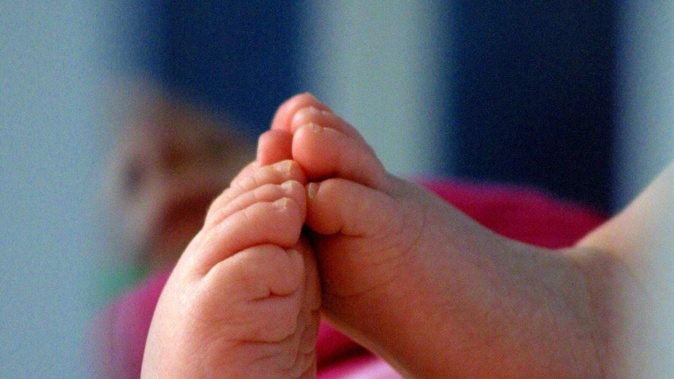
A 3-month-old baby was at higher risk of dying in his sleep because of his home environment. But it is too easy to simply blame the parents, a coroner says.
The death of a 3-month-old baby while sharing a bed with a parent might have been prevented if Oranga Tamariki had followed through on a commitment to provide safe bedding, a coroner has ruled.
Silongo Mihaka Mamaia Mika Mafi died in August 2020 in Manukau while sleeping next to his mother.
Oranga Tamariki had been involved with the baby’s family before his birth and the coroner was critical of its failure to ensure the parents were educated about safe sleeping and properly resourced.
The children’s ministry has now made a series of changes in response to Silongo’s death, including a review of guidelines for front-line staff working with children aged under 1 year.
The coroner’s report, published last month, said Oranga Tamariki had begun working with the family before Silongo’s birth because of concerns about the mother’s ability to care for her child.
The parents had been living in emergency housing and their relationship was “punctuated by domestic violence”.
After Silongo’s birth, a midwife noted he was a settled baby with no major concerns. He was enrolled with Plunket but was never seen by a Plunket nurse because the family were shifting between emergency motels.
The coroner found that Plunket contacted Oranga Tamariki several times to get updated contact details but the ministry was slow to respond or did not reply at all.
Coroner Mills said this was a missed opportunity for education and support to ensure Silongo was sleeping in a safe environment.
Three weeks before the baby’s death, an Oranga Tamariki social worker found that the family did not have a cot, blankets or bed linen. The coroner said there was no evidence that any steps were taken by the worker to get approval to buy these items.
Two days before the baby’s death, an Oranga Tamariki staffer was told by Silongo’s father that the baby was sleeping in their double bed with pillows on either side to stop him rolling. The social worker said they would get approval to buy a cot and two days later told the mother this would be arranged soon.
That night, Silongo died.
The coroner said there was no evidence in Oranga Tamariki’s systems that financial approval was sought for a cot.
The baby was at greater risk of sudden unexpected death in infancy (Sudi) because his parents smoked and he was not breastfed (his mother’s mental health medication prevented this).
/cloudfront-ap-southeast-2.images.arcpublishing.com/nzme/PQH23FVJ6RGFDLQOJCR6L244LQ.jpg) Coroner Alison Mills said it was easy to say Silongo's death was the result of unsafe sleeping and the parents were responsible. But this did not reflect the complexity of how and why he was sleeping in an unsafe environment, she said.
Coroner Alison Mills said it was easy to say Silongo's death was the result of unsafe sleeping and the parents were responsible. But this did not reflect the complexity of how and why he was sleeping in an unsafe environment, she said.
Coroner Mills said it was too simplistic to conclude that the baby’s death was the result of unsafe sleeping practices and that his parents were responsible.
“Silongo was a vulnerable pēpi,” her report said. “Safe sleeping requires both education and resources. The evidence suggests that, despite Oranga Tamariki and other interventions, this family missed out on both.”
The mother had said she usually placed Silongo face-down on the bed, which indicated she was not aware of the advice on safe sleeping.
Coroner Mills said proper intervention might have saved the baby’s life.
“I am very concerned that Oranga Tamariki social workers did not take immediate steps to ensure Silongo was provided with something as basic as a cot.
“It is highly possible that if Silongo was in his own cot, without pillows around him, this death may have been avoided.”
The coroner recommended that Oranga Tamariki review its guidelines for front-line workers and prioritise safe sleeping equipment such as cots, bassinets or wahakura, also known as pēpi pods. She also said her findings should be circulated amongst staff and that Oranga Tamariki should review its communications protocols with social services.
Oranga Tamariki told the coroner that it had accepted her findings and carried out the recommendations.
It also referred to broader work to identify young people’s housing, education and health needs and work with other agencies to improve their access.
New Zealand has a low rate of infant mortality but a relatively high rate of Sudi, especially among Māori and Pacific infants.
The most recent available data, from 2019, showed there were 46 Sudi deaths - or 0.8 deaths per 1000 births. Of that total, 29 were Māori babies and eight were from Pacific Island families.
In 2017, the Government set a national goal of 0.1 Sudi cases per 1000 births. However, some sources suggest rates are now increasing, especially among Māori.
Oranga Tamariki did not comment before deadline for this story.
Take your Radio, Podcasts and Music with you









